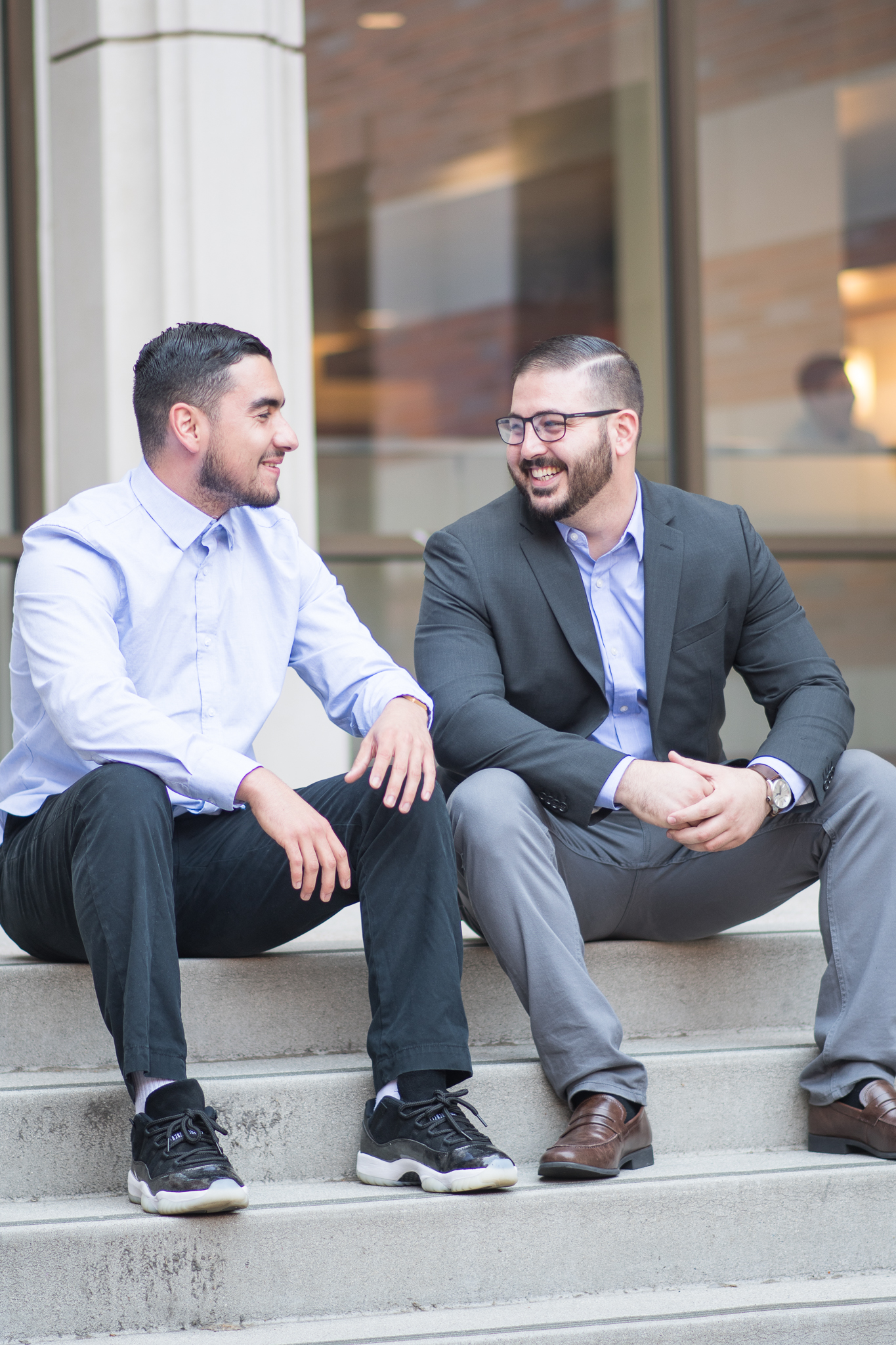Student creates group for formerly incarcerated students

Aris Mangasarian (right) founded The Underground Trojans to help formerly incarcerated students like Ronaldo Villeda (left) and himself to pursue higher education. (Emily Smith | Daily Trojan)
After he was released from prison in January 2014, Aris Mangasarian found it difficult to find the resources to apply to a four-year university from community college.
In response to his struggles years later, the junior founded The Underground Trojans at USC, a group meant to help formerly incarcerated individuals who are low-level offenders transition from the judicial system to higher education.
“Essentially what we’re doing is reducing prison recidivism and increasing the likelihood of a more productive, healthier lifestyle for returning citizens,” said Mangasarian, who is majoring in psychology. “We’re using higher education as a bridge between incarceration and successful reentry into the community.”
The organization is connecting students at different community colleges with the hope of helping them transfer to four-year institutions like USC.
In community college, Mangasarian explained how his academic counselor was unable to answer his career-oriented questions because of his record of multiple low-risk criminal offenses.
“They are not used to students asking those types of questions because we’re extremely non-traditional,” Mangasarian said. “Forget the color of your skin, your gender, your social economic status … none of those things matter. [Formerly incarcerated students] are just branded in a completely different way.”
When Mangasarian was sent to a halfway house, which gives formerly incarcerated people a transition space from prison to general society, he was asked to find a job as a requirement. Although he found a temporary job in construction, he realized that higher-end companies would not hire felons. For this reason, he decided to pursue higher education — on his own, however.
“I started off on the wrong path,” he said. “I never went to high school … I started using drugs early in my life and ended up years behind bars. There was always this feeling of shame. I didn’t like the path I was on but I didn’t really see a way out. At some point, I wanted something different.”
Ronaldo Villeda, a sophomore at Coastline Community College who was formerly incarcerated, is pursuing a path similar to Mangasarian. Villeda is currently receiving guidance from The Underground Trojans to apply to USC’s Iovine and Young Academy for the 2019-20 academic year.
During his time at Orange County Juvenile Hall, Villeda took Distance Learning courses on general business, which sparked his interest in pursuing higher education and ultimately a career in business.
“For formerly incarcerated individuals, education is usually not an option,” Villeda said. “It’s not a route that they see. They just think, ‘Education isn’t going to do anything for me’ and that’s where they’re wrong.”
Villeda said the stigma surrounding individuals who have gone through the criminal justice system must be abolished because everyone deserves the right to an education.
He said education is key regardless of a person’s background.
“[People] need to be a little bit more compassionate because everybody has a story,” Villeda said. “You never know what people have been through. Right when you say, ‘I’m formerly incarcerated, I’m a felon’ I feel like you just get put into a category and you’re like an outsider.”
Rossier School of Education adjunct professor Robert Hill, who serves as the Underground Trojans’ advisor, said he hopes the organization will bring awareness to the formerly incarcerated student population inside and outside of the USC community and demonstrate that the students are just like any other students on campus.
“We’re trying to make people aware that it’s okay to identify as formerly incarcerated,” Hill said. “It’s a special population of students that they shouldn’t have to fear. They should be identified so they can gain those resources.”
Mangasarian met Hill through the Restorative Justice Center at Glendale Community College, an organization for the formerly incarcerated he founded while studying there.
Mangasarian created a workshop to help the formerly incarcerated polish their stories and communicate their experiences in a way that highlights their strengths, something he hopes to bring to Underground Trojans.
“There are a lot of resources that formerly incarcerated students can use,” Mangasarian said. “But there isn’t something that is specifically geared toward us … We need to be informed on these [opportunities] so we can make these informed decisions about our future careers.”
Just like he did, Mangasarian hopes students find the strength and empowerment to pursue education and to become leaders for social change and advocacy through his organization.
“[We need to view them] as human beings,” Mangasarian said. “These are people who have paid their debts to society — enough is enough. How long do I have to be in prison for? I already did that, why am I marginalized? Why am I still being defined by my path … We should be given more chances.”
